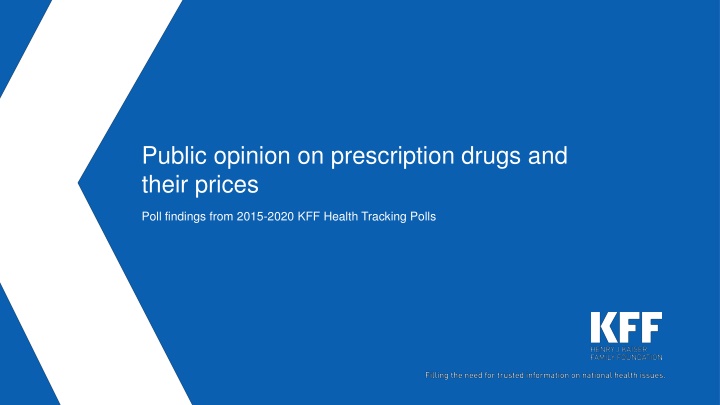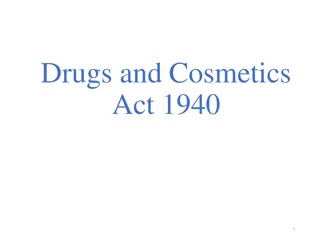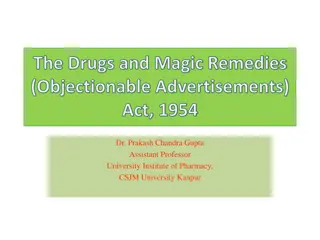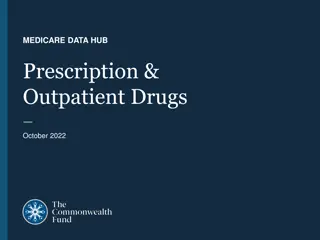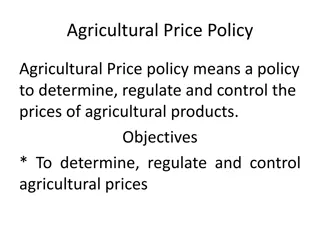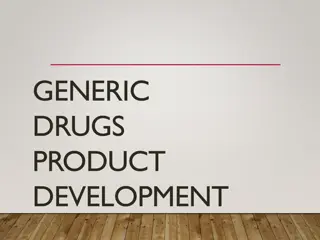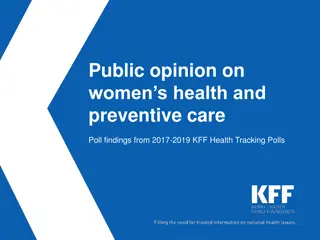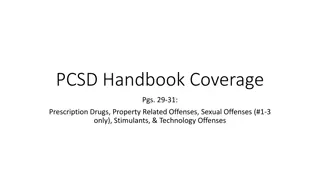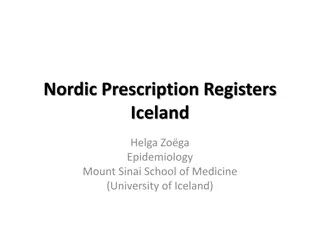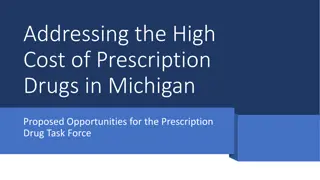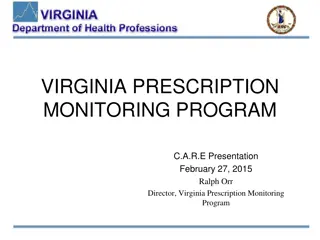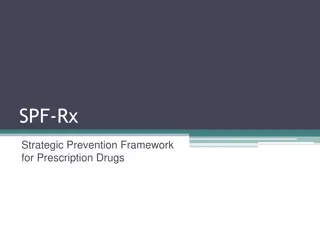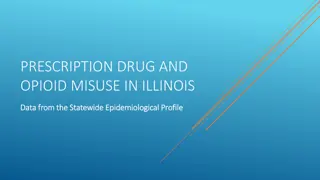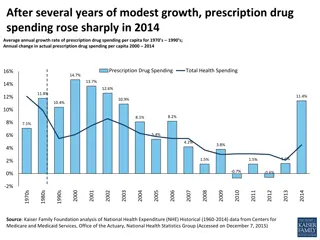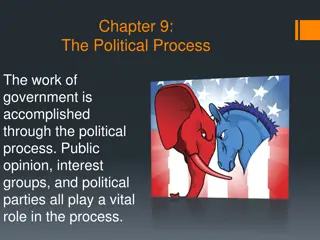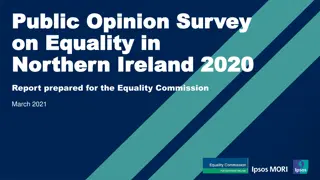Public Opinion on Prescription Drugs and Their Prices: Key Findings 2015-2020
Public opinion polls from 2015 to 2020, conducted by KFF Health Tracking Polls, reveal insights on Americans' views on prescription drugs. Key findings include the prevalence of prescription drug use, concerns about affordability, and challenges faced by individuals in affording their medication. The polls highlight that a significant percentage of Americans find the cost of prescription drugs unreasonable, with many facing difficulties in affording their medications, leading to non-adherence to prescribed treatments due to financial constraints.
Download Presentation

Please find below an Image/Link to download the presentation.
The content on the website is provided AS IS for your information and personal use only. It may not be sold, licensed, or shared on other websites without obtaining consent from the author.If you encounter any issues during the download, it is possible that the publisher has removed the file from their server.
You are allowed to download the files provided on this website for personal or commercial use, subject to the condition that they are used lawfully. All files are the property of their respective owners.
The content on the website is provided AS IS for your information and personal use only. It may not be sold, licensed, or shared on other websites without obtaining consent from the author.
E N D
Presentation Transcript
Public opinion on prescription drugs and their prices Poll findings from 2015-2020 KFF Health Tracking Polls
About 6 in 10 Americans report currently taking at least one prescription medicine 59% SOURCE: KFF Health Tracking Poll (conducted November 7-12, 2019)
1 in 4 Americans say they take four or more prescription drugs 27% 12% 11% 8% + SOURCE: KFF Health Tracking Poll (conducted November 7-12, 2019)
79% say the cost of prescription drugs is unreasonable but among those currently taking prescription drugs 74% say affording them is easy. SOURCE: KFF Health Tracking Polls (February 14-24, 2019)
For many, more prescriptions mean more problems with cost Difficult to afford prescription medicine Easy to afford prescription medicine 17% Among those taking 1-3 prescription drugs 83% - Among those taking 4 or more prescription drugs 35% 62% + SOURCE: KFF Health Tracking Poll (February 14-24, 2019)
Who Has Difficulty Affording Their Prescription Drugs? Percent who say it is difficult to afford the cost of their prescription medicine: Total 24% 17% Taking 1-3 prescription drugs Taking 4 or more prescription drugs Spending less than $100 per month on Rx Spending $100 or more per month on Rx 35% 17% 58% 18-49 years old 50-64 years old 65 and older 21% 30% 23% Excellent/Very good health 9% Good health 21% Only fair/Poor health Less than $40,000 $40,000-$89,999 $90,000 or more 49% 35% 21% 11% SOURCE: KFF Health Tracking Poll (conducted February 14-24, 2019)
Three In Ten Say They Havent Taken Their Medicine As Prescribed Due To Costs Percent who say they have done the following in the past 12 months because of the cost: Percent who did not take prescription medicine as directed because of the cost 12% 19% Not filled a prescription for a medicine Cut pills in half or skipped doses 29% 18% Taken over-the-counter drug instead SOURCE: KFF Health Tracking Poll (conducted February 14-24, 2019)
And One-Fifth Of The Public Say Lowering Rx Drug Prices Should Be Congress Top Health Priority Percent who say each of the following is the top health priority for Congress to work on: Lowering prescription drug costs for as many Americans as possible Making sure the ACA's protections for people with pre-existing conditions continue Doing more to address the heroin and opioid addiction epidemic Protecting people with health insurance from surprise medical bills Addressing the rise of vaping and e-cigarette use among teenagers 22% 19% 15% 11% 7% None of these 21% SOURCE: KFF Health Tracking Poll (conducted January 16-22, 2020).
Pharmaceutical Companies among top of publics list of having too much influence in D.C. Percent who say that each of the following have too much influence in Washington: Large businesses 76% Pharmaceutical companies 72% Wall Street 69% Health insurance companies 66% NRA 52% Hospital groups 36% Doctors groups 30% Labor unions 28% AARP 17% Small businesses 5% People like them 2% SOURCE: KFF Health Tracking Poll (conducted March 8-13, 2018)
59%of the public says that prescription drugs developed over the past 20 years have made the lives of people in the U.S. better SOURCE: KFF Health Tracking Poll (conducted February 14-24, 2019)
80% say profits made by Rx companies is a major factor contributing to price of prescription drugs. Americans cite other major contributors to prescription drugs, such as Cost of research and development (69%) Profits made by PBMs, companies that manage prescription drug benefits (63%) Cost of marketing and advertising (52%) SOURCE: KFF Health Tracking Poll (conducted February 14-24, 2019)
Who do Americans trust to lower prescription drug costs? depends on who you ask Democratic Party Republican Party Neither Don't know/Refused Among Democrats Among Independents Among Republicans 91% 75% 28% 47% 17% 8% 11% 2% 3% 5% 8% 4% SOURCE: KFF Health Tracking Poll (conducted October 3-8, 2019)
But Most Say Democrats and Republicans in Congress Are Not Doing Enough To Lower Rx Drug Costs Percent who say to bring down the cost of prescription drugs: Republicans in Congress are not doing enough Democrats in Congress are not doing enough Total 75% 77% Democrats 65% 92% Independents 80% 83% Republicans 79% 56% SOURCE: KFF Health Tracking Poll (conducted November 7-12, 2019). See topline for full question wording and response options.
Voters Divided About Whether Donald Trump Or Joe Biden Has The Better Approach To Lowering Rx Drug Costs Donald Trump 43% Joe Biden 50% DK/ Refused 8% SOURCE: KFF Health Tracking Poll (conducted October 7-12, 2020).
Most Americans favor several actions to lower drug costs Percent who favor each of the following actions that would keep prescription drug costs down: Requiring drug companies to include list prices in ads 88% Making it easier for generic drugs to come to market 88% Allowing the gov't to negotiate with drug companies to get a lower price for people with Medicare (Oct. 2019) Allowing the gov't to negotiate with drug companies to get a lower price on Rx drugs that would apply to both Medicare and private insurance (Oct. 2019) Placing an annual limit on out-of-pocket drug costs for people with Medicare (Oct. 2019) 88% 85% 81% Allowing Americans to buy drugs imported from Canada (Oct. 2019) 78% Allowing Medicare to place limits on how much drug companies can increase the price of drugs based on annual inflation rates (Oct. 2019) Increasing taxes on drug companies that refuse to negoitiate the price of Rx drugs with the gov't (Oct 2019) 76% 72% Increasing taxes on drug companies whose prices are too high 63% Lowering what Medicare pays based on amounts in other countries (Oct. 2019) 62% Ending the tax break given to drug companies for their advertising spending 57% Allowing Medicare plans to put more restrictions on use of certain drugs 53% Allowing Medicare drug plans to exclude more drugs 25% SOURCE: KFF Health Tracking Polls (conducted February 14-24 and October 3-8, 2019)
About Nine in Ten Americans Favor Drug Price Transparency in Advertisements Oppose 9% 88% Don't know/Refused 2% favor the federal government requiring Rx drug ads to include the list price of the drug SOURCE: KFF Health Tracking Poll (conducted February 14-24, 2019)
Among the 14% of the public who have talked to their doctorafter seeing/hearing an Rx drug ad Percent who say their doctor did each of the following: 55% Gave them the Rx drug they asked about 54% Recommended a different Rx drug Recommended changes in behavior/lifestyle 54% Discussed the cost of the Rx drug 48% 41% Recommended an over-the- counter drug SOURCE: KFF Health Tracking Poll (conducted June 11-20, 2018)
Large majority agree importing Canadian Rx drugs would make medicines more affordable Percent who agree allowing Americans to buy prescription drugs imported from Canada allowing Americans to buy prescription drugs from online pharmacies based in Canada will make medicines more affordable without sacrificing safety or quality 76% 68% will expose Americans to unsafe medicines from other countries 35% 39% will lead U.S. drug companies to do less research and development 29% 33% SOURCE: KFF Health Tracking Poll (conducted April 17-23, 2017)
What would do a better job keeping prescription drug prices down? The public has a slight preference for market competition overgovernment regulation 50% 41% but views vary by party Democrats 35% 56% Independents 51% 39% Republicans 71% 24% SOURCE: KFF Health Tracking Poll (conducted February 14-24, 2019)
63% of Americans think there is not as much regulation as there should be when it comes to limiting the price of prescription drugs. That s 72% of Democrats 62% of independents and 53% of Republicans SOURCE: KFF Health Tracking Poll (conducted February 14-24, 2019)
